"Just two decades ago, Vietnam was one of the poorest countries in the world . Now, the country is a prosperous regional hub with huge room for further growth."
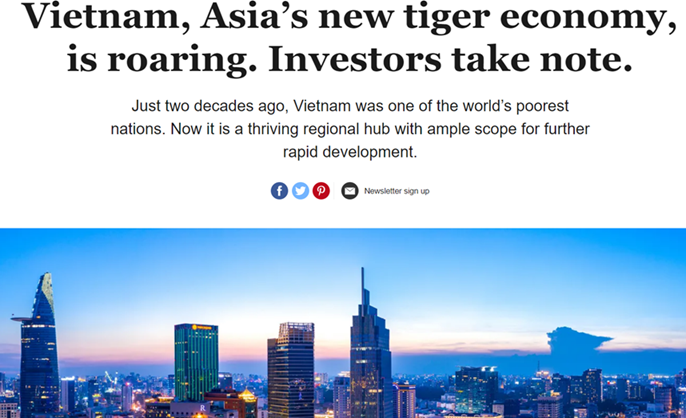 |
| Recent analysis on moneyweek.com about Vietnam's economic outlook. (Screenshot) |
Huge room for growth
A recent article on moneyweek.com (a British investment analysis website) titled "Vietnam, Asia's new economic tiger, is growing strongly, investors take note" affirmed that Vietnam is currently a prosperous center in the region with great development potential and is of interest to foreign investors.
At the beginning of the analysis, the author wrote: "Just two decades ago, Vietnam was one of the poorest countries in the world. Now, the country is a prosperous regional center with great room for further development."
The article pointed out that Vietnam dominates the smartphone industry, largely thanks to the huge investment of Samsung Group. Vietnam is planning to shift from the “labor-intensive” textile and assembly industry to high-profit sectors such as semiconductors.
This is making foreign investors interested in Vietnam under increasing pressure to diversify supply chains.
In addition, the article mentions Vietnam’s frontier market advantage. Accordingly, this booming economy has attracted the attention of foreign investors, but not much because Vietnam has not been classified as an emerging market (EM) by the US financial company MSCI but is still only a “frontier market”.
This puts Vietnam’s stocks on par with those of Benin, Kazakhstan and Serbia. If Vietnam is upgraded to EM status, funds tracking the benchmark EM index will pour money into Vietnam, which will boost the value of domestic stocks, estimated at $5-8 billion.
Vietnam stocks are the largest component of frontier markets and for years foreign investors have been betting that a relegation is just a matter of time.
The stock market is also one of the aspects that investors need to pay attention to, according to the article. Vietnam has recorded lower inflation than many Western economies. This has allowed the State Bank to cut interest rates four times in 2023, causing retail investors to flock to the stock market in search of higher returns than depositing money in banks.
The author of the article commented that, for investors, the volatility of the domestic stock market means that Vietnam is not yet an important country in their investment portfolio, but is still worth paying attention to.
In case of an upgrade, Vietnam's stocks will have a strong boost. Even as a frontier market, Vietnam is still an attractive market.
Completely optimistic about the 2045 target
The article cites a report by the Brookings Institution, a US think tank, which notes that “to become a high-income country by 2045, Vietnam will need to sustain an average growth rate of at least 7% over the next 25 years.” This is not easy. Vietnam’s low wages are a major attraction for investors, but that advantage cannot last forever if the ultimate goal is a richer society.
However, there are reasons to be optimistic about the above target. Vietnam’s GDP per capita remains at $4,000, which is less than one-third of the global average, so there is still plenty of room to “catch up” before the risk of a middle-income trap arises.
Many countries today find their path to high incomes hampered by low levels of education that confine their workforce to boring factory jobs, the article says. Yet Vietnam currently spends significantly more on education as a percentage of GDP than many countries.
According to World Bank (WB) data, the average years of schooling of Vietnamese people are the second longest in Southeast Asia, after Singapore. Vietnam’s human capital index is the highest among lower middle-income economies. As a result, Vietnam’s educated and entrepreneurial workforce is well-equipped to ensure the country’s development path.
The British newspaper said that Vietnam is dubbed the new Asian tiger, recalling the rapid development of the economies of South Korea, Taiwan (China), Hong Kong (China) and Singapore in the second half of the 20th century. Vietnamese investors certainly hope that the country can follow the example of the previous "tigers" to enter the high-income group, defined by the World Bank as countries with a gross national income per capita of over 13,845 USD.
The British newspaper also noted that Vietnam needs to look at the economies of its close neighbors in Southeast Asia to draw lessons. In the 1990s, Thailand and Malaysia also had impressive growth rates but struggled to regain momentum in the years after the 1997 Asian financial crisis. Therefore, the road to achieving the goal will not be easy.
Source


![[Photo] General Secretary To Lam receives Vice President of Luxshare-ICT Group (China)](https://vphoto.vietnam.vn/thumb/1200x675/vietnam/resource/IMAGE/2025/11/15/1763211137119_a1-bnd-7809-8939-jpg.webp)

![[Photo] Prime Minister Pham Minh Chinh meets with representatives of outstanding teachers](https://vphoto.vietnam.vn/thumb/1200x675/vietnam/resource/IMAGE/2025/11/15/1763215934276_dsc-0578-jpg.webp)


![[Photo] Panorama of the 2025 Community Action Awards Final Round](https://vphoto.vietnam.vn/thumb/1200x675/vietnam/resource/IMAGE/2025/11/15/1763206932975_chi-7868-jpg.webp)


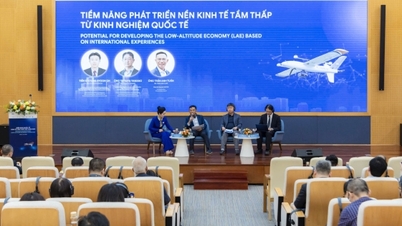

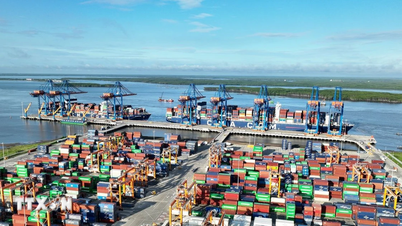

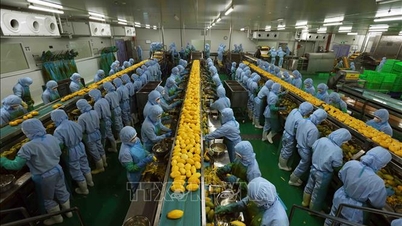



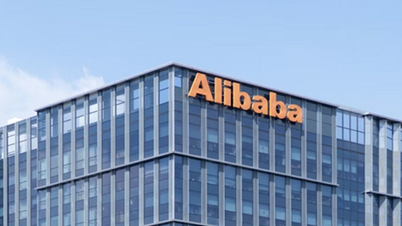




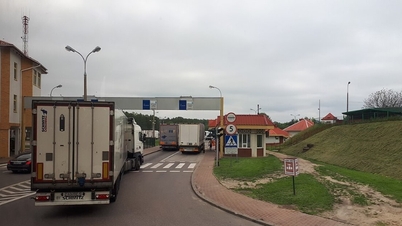





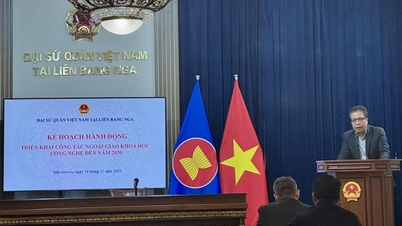

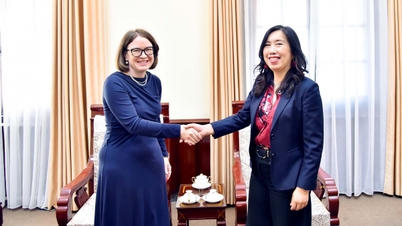

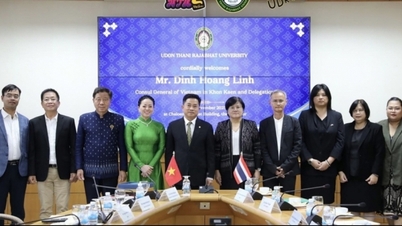





































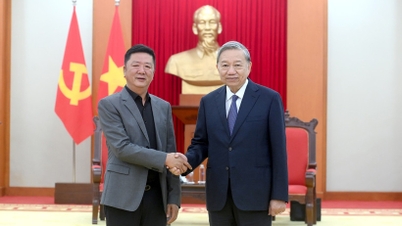

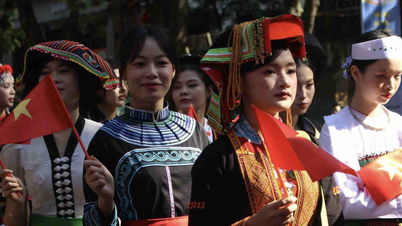





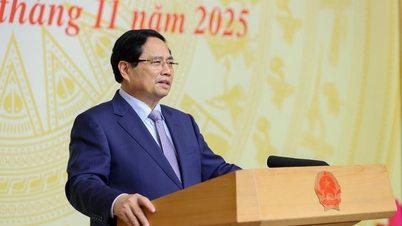
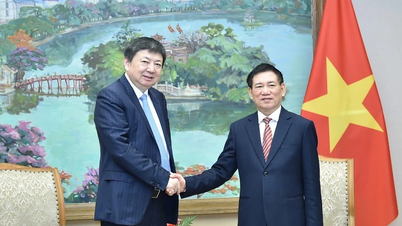





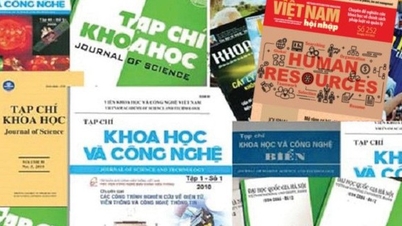
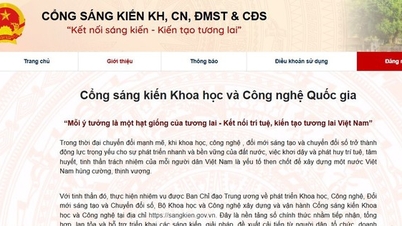





















Comment (0)